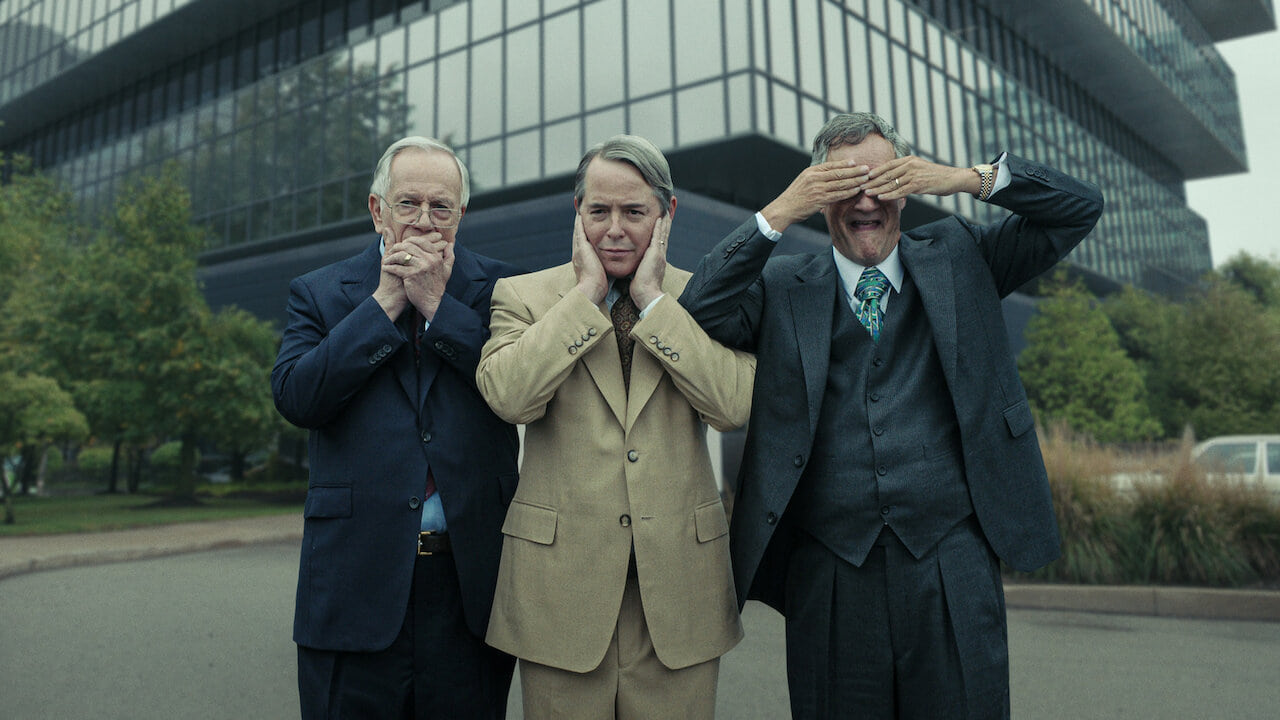Painkiller’s ‘tell don’t show’ expose has some nasty side effects

Netflix drama Painkiller narrativises the spread of OxyContin addiction across the US: Luke Buckmaster wishes that the limited series didn’t beat viewers over the head with its message so much.
The famous screenwriting dictum “show don’t tell” is a drum critics will keep beating until the end of civilized society, or the end of motion pictures. Whichever comes first. It’s a line that disappears into the recesses of the mind and then comes back, like a reanimated corpse, triggered by productions such as Netflix’s six-part drama Painkiller. Its creators, Micah Fitzerman-Blue and Noah Harpster, and director Peter Berg, condemn the Big Pharma industry and focus their ire on peddlers of OxyContin—the highly addictive drug that arguably fuelled America’s opioid crisis, which has claimed hundreds of thousands of lives.
The beginning of each episode nails its colours to the mast by having the real-life parent of a person who died from the drug appear. In an emotional twist on a familiar disclaimer, a woman in the first episode says words that usually appear as text: “this program is based on real events, however certain characters, names, incidents, locations and dialogue have been fictionalised…” Then she adds: “what wasn’t fictionalised is that my son, at the age of 15, was prescribed OxyContin,” going on to recount that “at the age of 32 he died all alone in the freezing cold in a gas station parking lot.”
One’s heart naturally goes out to this mother, her grief horrific, her suffering never-ending. But this isn’t a great way to begin a dramatic series. Emotional truth in drama must be represented and earned; you can’t just insert a prerecorded message and expect the job to be done. As the first episode progresses and the narrative takes form, a character emerges who amplifies the show’s tendency to tell tell tell: Edie Flowers (Uzo Aduba), a former investigator for a U.S. attorney’s office who spent many years investigating Purdue Pharma, the company that created and distributed oxy.
Edie’s not quite the protagonist: more an in-world narrator the screenwriters (Micah Fitzerman-Blue, Noah Harpster, Will Hettinger and Boo Killebrew) return to for commentary and the delivery of neat summarising statements. Early on Edie visits a Washington meeting room, where she’s introduced to a legal team posed to take on Purdue Pharma. Using Edie as a loose framing device, the show then jumps between a series of disparate storylines including hers (from an earlier time), a mechanic named Glen (Taylor Kitsch) who becomes addicted to OxyContin after a back injury, and a young woman, Shannon Schaeffer (West Duchovny), whose job is to bat her eyelids at doctors and sell the drug to as many as possible.
Whenever it starts to feel like we’re beginning to slip into the fabric of the drama, Edie is right there to pull us back, to tell tell tell. The tone of her commentary implies viewers are too stupid to grasp Painkiller’s already unsubtle messaging. “This isn’t just about a pill that killed a lot of people, it’s bigger than that,” she notes. Thanks mate. On the subject of Richard Sackler, she says he realised that “with the right pill he’d have a customer for life” and “unleashed a monster that made billions.” Got it. At one point Edie describes the creation of OxyContin as “the birth of a bad idea.” Got that, too. Quite a while ago. Then, even more gallingly, she says: “this story is a tragedy.” No dur.

Matthew Broderick’s performance as Sackler has been used to sell the show (because Ferris Bueller grew up and became an opioids baron) but it’s on the periphery. His deflated, sad sack personification of nefariousness is realistically pitched but not especially engrossing. One might assume, given those heartrending direct-to-cam introductions, that Berg would take realism seriously and aspire for an airtight sense of verisimilitude. Instead we get embellishments that feel like they’ve been cribbed from Ratched. One scene in episode two, depicting the first human trials of the drug, is flat-out horror, full of screaming sweaty humans suffering “adverse experiences” (those words of course are proffered by Edie, still narrating from Washington. At least, for once, she was understating it).
Even worse is the decision to provide Sackler ongoing advice via the ghost of his dead uncle and mentor, Arthur (Clark Gregg). Who thought that was a good idea? Why not give it the full cartoon treatment and summon a moustache twirling, cat-stroking villain plotting world domination, one pill at a time? It’s as if Berg thought that shoehorning in vision of actual people at the beginning of each episode insulated the drama, making it realistic by default. It certainly doesn’t.


















